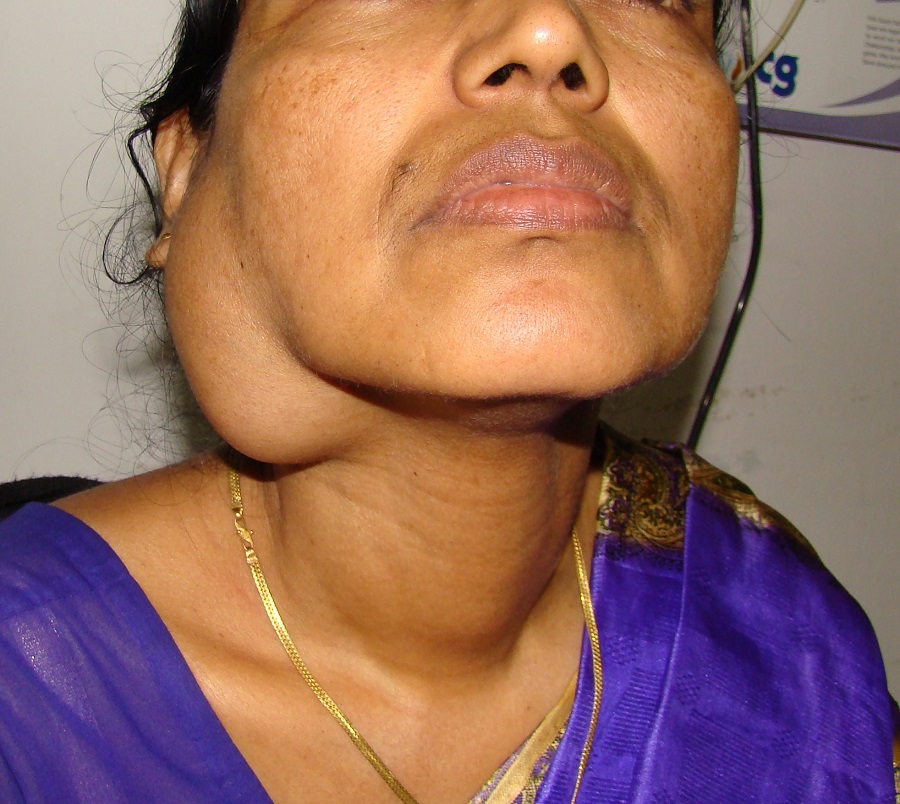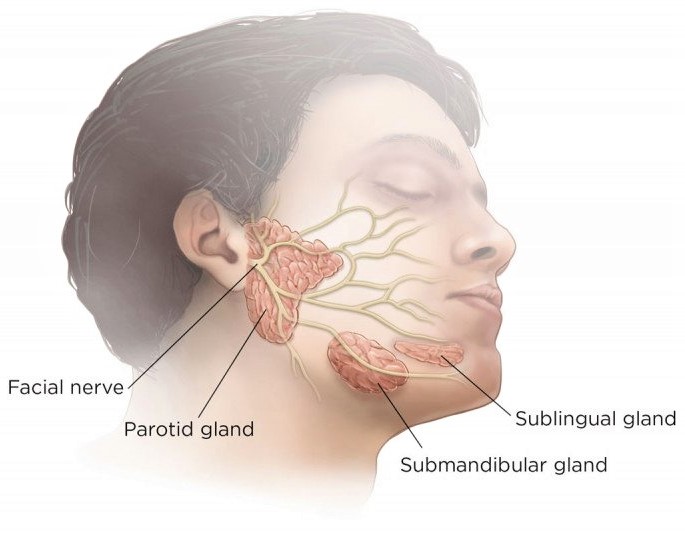
The salivary glands are meant to produce a lubricant that helps with swallowing and digestion of food, and protects our teeth and gums from infections. There are three major glands in our bodies, they are called as sublingual, submandibular and parotid, along with hundreds of other minor glands, or ducts. It’s an intricate system, which produces unpleasant symptoms when not working appropriately.
Symptoms like swelling, or redness inside, or outside your mouth often arise, along with a dry, or painful mouth, a bad taste, unwanted pus, or discomfort when eating are common along with wider fever is possible and in rare scenarios, cancer of salivary gland. More benign growths, infections, cysts, or salivary gland stones are quite common and require treatment, to restore healthy function.

Treatment naturally depends on diagnosis. An unusual, serious issue such as salivary gland cancer could require surgery and radiotherapy, a simple infection, no more than antibiotics.
Patients are however often referred to our center for a specialist surgery, after likely causes are known. Fair to say that in a number of cases, surgical intervention will be the solution.
For salivary gland stones, or similar blockages, breaking them down, or manual removal will be needed, of the stones, possibly individual glands. Surgery is again probable to remove cysts, or a range of growths.
Whereas non-surgical answers can apply, we aim to provide an excellent long term cure for patients and avoid recurrence and appreciate a return to normal life for the patients.
Surgery is not too arduous, a local anaesthetic and half day surgery in a fair share of cases, or general anaesthetic and a night’s stay for others is what can be expected from them.
Lorem ipsum dolor sit amet, consectetur adipiscing elit. Ut elit tellus, luctus nec ullamcorper mattis, pulvinar dapibus leo.